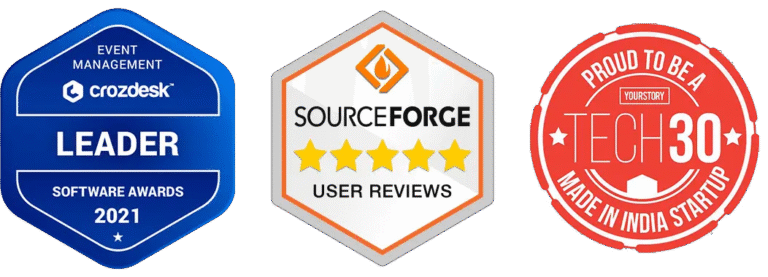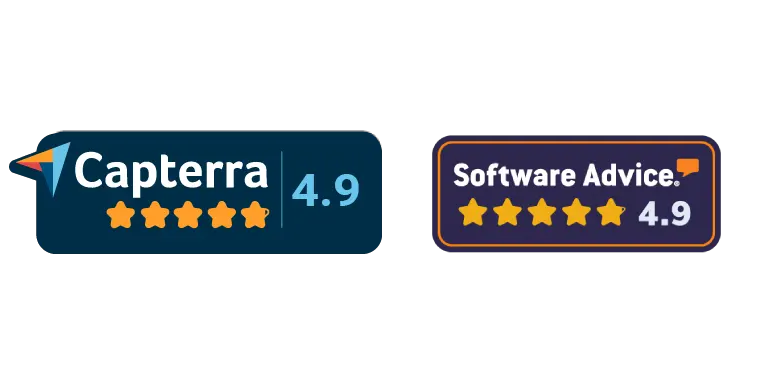Samaaro + Your CRM: Zero Integration Fee for Annual Sign-Ups Until 30 June, 2025
- 00Days
- 00Hrs
- 00Min
As the events industry realizes the potential of cutting-edge event-tech solutions, there is a very propitious opportunity for event managers and business owners to leverage a resource that has been described as the new oil- Data. But before we dive deep into the world of Data Analytics and Event Management, let us first ask ourselves this.
In the 18th century, oil companies ruled the world. Major breakthroughs that allowed humans to drive innovation and come up with innovations like the IC engine, central heating, etc were driven by oil. It was the primary factor that powered economies, and changed the way people lived, worked and travelled.
Today, in the digitized world that we live in, data is more valuable than ever, and it is triggering a similar effect as oil. Just like the discovery of oil paved the way for man to come up with revolutionary inventions, data is enabling businesses to come up with better, innovative and revolutionary business solutions.

All these examples stand to reason that data analytics presents an invaluable opportunity for firms to innovate and flow ahead of their competition. But, one industry that can make the most of the potential of data analytics is the Events Industry.
Now that all businesses and brands are reimagining their events by pivoting to hybrid events, the need for data analytics is on an all time high.
In this article, we’ll explore what event analytics is and highlight some of the ways event professionals can utilize event data to improve their event planning and strategy. But before we proceed further, let’s take a step back and understand what data analytics is.

In its simplest definition, data analytics is the process of understanding, analyzing and drawing insights from the available data to make informed business decisions. In the digitized world that we live in and depend on, an ocean of data is generated every minute that contains patterns which can be converted into information, which in turn can yield valuable insights.

Data analytics has been identified as an emerging trend in the events industry; with more and more companies realizing the infinite potential of analytics.
Recognizing this trend, hybrid event platforms today are coming up with an in-built analytics dashboard that helps organizers collect data and gain insights from it.
From improving customer engagement to creating more personalized content, data analytics helps churn out meaningful information, allowing event planners to better understand attendees and their behaviors, as well as enabling events to become even more impactful.
In fact, judicious use of data analytics is one of the main differences between succeeding and failing companies today.

The data that can be collected from events can be broadly classified into two categories.
– Also known as “explicit data”,active data collection is the process of collecting attendees’ preferences and thoughts about an event. It provides more precise data because the information is received directly from the attendee.
Here are some of the examples of active data collections.
Basically, anything that you ask for directly to your user is active data collection.

Active Data in Profile Dashboard

Active Data in Organizer Dashboard

Active Data Collection during User Registration
Want to learn more about active data collection and how you can leverage that for your next hybrid event? Get in touch with our team and let us help you explore Samaaro!
– Also called as “implicit data”, passive data collection is the data that lets you gather information related to your event that doesn’t require direct involvement from the attendees.
Here are some of the most important types of passive data that can be collected during a virtual or hybrid event.

Demographics allows you to better understand the audience through certain data points like age, location, marital status, income, education, employment, etc. Demographics are very helpful in determining the most appropriate way to reach your customers and assess their behavior.

Psychographics is yet another crucial marketing research metric that classifies audience according to their aspirations, motivations, and other psychological criteria. Psychographics is important because it helps one define a narrower and highly targeted customer and their personas.

It shows what percentage of the audience is interacting with your content. If the engagement rate is low, it is a clear indication that the content of the hybrid event has to be improved.

It is the process of gaining insights about your audience’s opinion of your event and how they interacted with the content of the event. This helps one study the emotions felt by your audience and in turn helps us understand how the audience perceives your brand at the end of the event.

A heatmap is a data visualization tool that helps event organizers understand attendee behavior on different spaces across the platform. It basically tracks where the attendee spent most of their time during a virtual or hybrid event and gives the organizer an idea where the attendees spent most of their time.

Samaaro is one of the first event management solutions to have an in-built analytics dashboard that gives event organizers access to active data and passive data in real-time.

The powerful analytics dashboard collects data points like the most downloaded resources, average time spent on each booth, demographics, psychographics, number of connections made and a lot more. A simplified yet detailed analytics report containing all the pertinent information to the event to help organizers better understand their event and the audience.
Read our Case Study on REIE Expo, to learn more about Samaaro’s analytics dashboard.

While collecting data is one thing, turning them into actionable insights is a completely different ball game. Translating event data into insights can not only help us in making events more customer-centric, but also make our next event more successful.
Hybrid events provide a lot of specific metrics that can be tracked and translated into valuable insights. Here is a list of insights that can be generated from virtual events:

Harnessing event analytics is a must for event planners who want to deliver successful events, considering events produce a goldmine of data waiting to be converted into valuable insights.
Here are top 5 ways analytics can be used to improve event planning and delivery:
There is no shortage of data in the world today. In fact, as you are reading this, infinite amount of data is being generated. But the willingness of marketers to analyze this data and convert it into meaningful information is lacking. Having a good understanding of how your event fared through data and stats translates into better adaptability for future events.
As mentioned above, data is the new oil. The intelligence derived from data analysis of events data will also help you stay in sync with your event’s vertical and grow it to new heights.
Samaaro is a powerful virtual and hybrid events platform that organizations around the globe have leveraged to host scalable and engaging events. Our reputed clients have hosted Virtual Exhibitions, Virtual Tradeshows, Virtual summits, Hybrid events, Hybrid trade shows, Virtual fairs, Virtual conferences, Virtual awards ceremonies, and more on Samaaro. With a plethora of features, such as a powerful analytics dashboard, one-on-one and group chats/video calls, custom software integrations, and more, Samaaro empowers you to host impactful hybrid events that effectively connect you with your global audience and achieve business milestones.

Built for modern marketing teams, Samaaro’s AI-powered event-tech platform helps you run events more efficiently, reduce manual work, engage attendees, capture qualified leads and gain real-time visibility into your events’ performance.


© 2025 — Samaaro. All Rights Reserved.